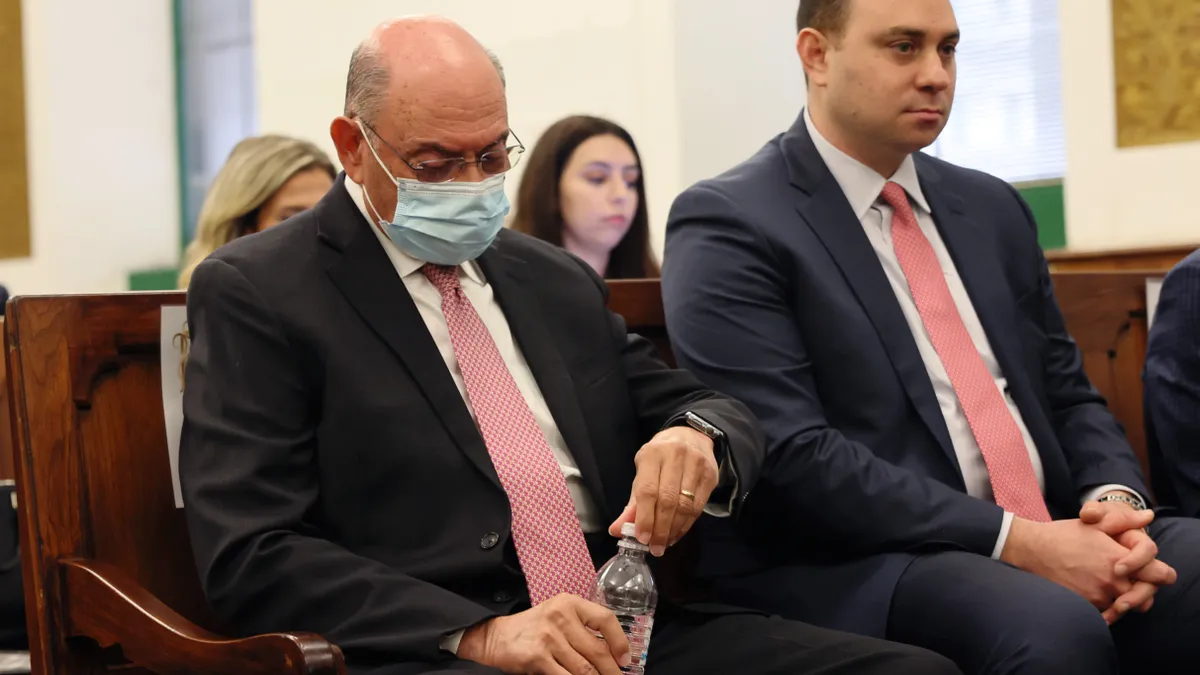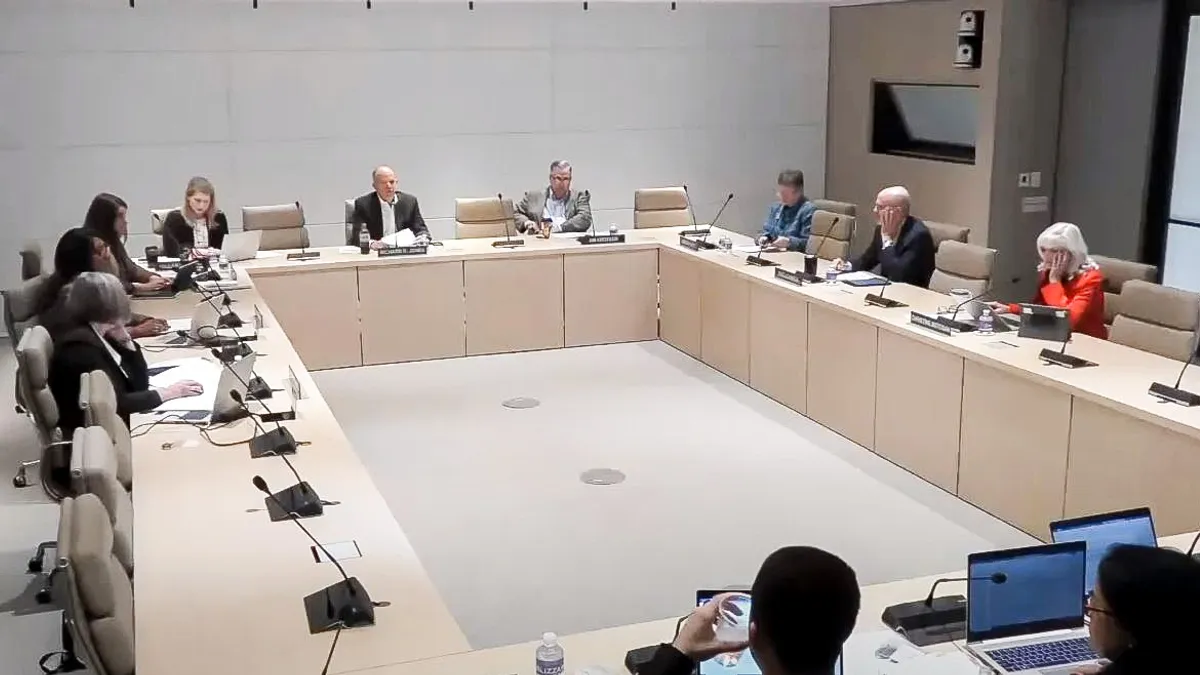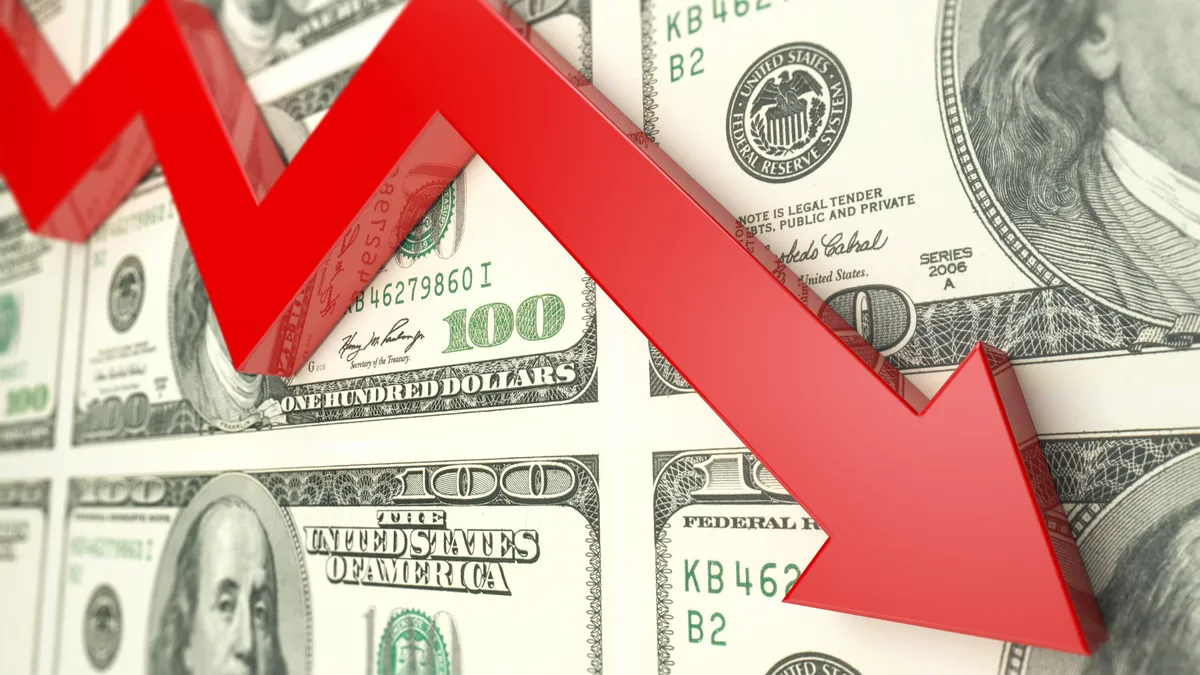If upheld, the sweeping ruling Judge Arthur Engoron handed down on Friday has significant implications for the future of the Trump Organization: it bars the former president and his two eldest sons from holding executive positions in New York for several years and requires them to pay a nearly half billion dollar fine, including interest that grows daily.
But, as the dust settles from the long-awaited ruling in the New York Attorney General’s civil fraud case against former president Donald Trump, the ex-Trump Organization CFO Allen Weisselberg is left embroiled in legal and financial turmoil. For the 76-year old Weisselberg, the penalties laid out by the judge essentially represent the end of his career, Jack Castonguay, an assistant professor of accounting at Hofstra University, told CFO Dive in an emailed response to questions.
As a result of the civil fraud judgment, Weisselberg was permanently barred from serving in the financial control function of any New York corporation, and was banned from holding any other executive positions for a period of three years.
A New York company could potentially hire Weisselberg in a different capacity outside of the financial function after that three-year time limit has eclipsed. But Weisselberg’s advanced age, his previous conviction of tax fraud in the state and the rulings laid down by Engoron “would make any organization with an emphasis on adherence to ethical standards skeptical of bringing him on,” Castonguay said.
While rejecting arguments by Trump’s attorneys that outside accountants were responsible for the fraudulent valuations under review during the trial, Engoron did not discount the actions of the organization’s financial leaders, writing in his 92-page ruling that Weisselberg was “a critical player in nearly every instance of fraud.” Moreover, the judge wrote, the evidence is “overwhelming” that both Weisselberg and the company’s ex-controller Jeffrey McConney “cannot be entrusted with the finances of any business.”
“If you're a company hiring him you would have to essentially say you are comfortable having an employee that a court has ruled cannot be trusted with and can't serve in a financial control function on your team,” Castonguay said. “In my opinion, that would be a bad message to send to the rest of your company.”
Judge rules severance ‘ill-gotten gains’
As well as a fraught ending to his career, Weisselberg is also facing ongoing financial and legal issues stemming from the civil fraud trial and his decades-long tenure with the Trump Organization.
The ex-CFO’s severance agreement with the organization was spotlighted in Engoron’s ruling, following months of back-and-forth surrounding the agreement’s terms and language during the civil fraud trial. That the $2 million promised to Weisselberg as part of the agreement dovetailed with the $2 million in back taxes, interest and other penalties owed due to the ex-CFO’s 2022 conviction for tax fraud did not escape the notice of the NY AG’s office, with attorneys also pointing to language barring Weisselberg from disparaging his former employer.
There is “substantial evidence” that the agreement “was negotiated to compensate him for his continued non-cooperation” with any entities with interest in legal actions against the Trump Organization, the judge wrote. Weisselberg is required to pay the $1 million he has presently received as part of his $2 million severance agreement back to the state as “ill-gotten gains,” leaving $1 million left to collect by the ex-CFO.
The fate of the remaining $1 million could be another challenge brewing for the ex-CFO after the judge ruled the agreement was designed to ensure Weisselberg did not cooperate with prosecutors. Though Weisselberg could potentially sue the Trump Organization if they renege on the agreement, his former fraud conviction makes that tricky, Peter Tilem, senior partner at Tilem & Associates, said in an email.
“Without reviewing that agreement, I would guess that the decision that he committed fraud would probably constitute a breach of that agreement,” Tilem said.
The Trump Organization would have “presumably” been aware of the fraud before the agreement was signed, Eric Trump — who said he was the party responsible for drafting the agreement — testified during the trial.
Perjury charges linger
On top of the penalties determined by Engoron, the specter of further prison time also hangs over the former finance chief, who served a five-month stint at Riker’s Island as part of his 2022 tax fraud conviction.
The ex-CFO is reportedly in talks with the Manhattan District Attorney for a deal that would require him to plead guilty to charges of perjury relating to his testimony during the trial, CFO Dive previously reported. If Weisselberg pleads guilty to felony perjury, the possibility of that second felony exposes him to a state prison sentence, experts previously told CFO Dive.
Taken together, the financial penalties, fraud convictions and perjury charges paint a bleak future picture for the 76-year old former finance chief. Weisselberg’s case, while it does not have broad implications for other CFOs, could perhaps best “serve as a warning” for other executives to pay closer attention to their due diligence even when run by dominant personalities like Trump’s, Castonguay previously told CFO Dive.
Weisselberg’s attorney Seth Rosenberg did not immediately respond to requests for comment.























